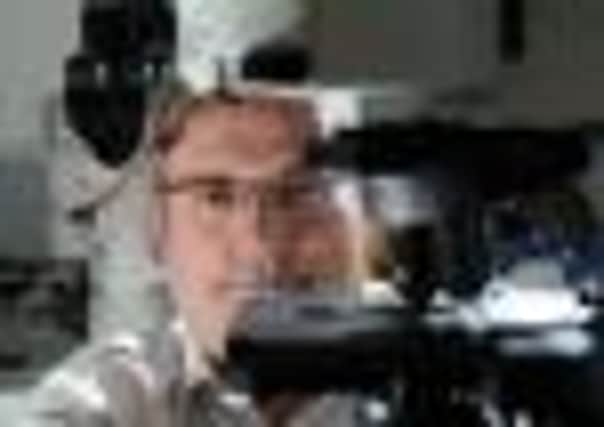Regenix patches on cusp of use by the NHS


The York-based firm believes advances in its body part-regrowing technology, including successful interim results from an NHS study of its patches, put it on the cusp of significant commercial progress.
The study showed its skin patches significantly shrunk or completely healed ulcers in 20 patients. The study, being done in Manchester in partnership with NHS Blood and Transplant (NHSBT), is due to complete by the end of the year.
Advertisement
Hide AdAdvertisement
Hide Ad“We’re hopeful that they (the NHS) will want to launch in the next year,” said executive chairman John Samuel. “Ultimately this will be done in a GP’s surgery.
“I’ve no doubt that from next year the NHS will start using it. This is dealing with real issues with real products.”
Tissue’s skin patches are pieces of human skin which have been stripped of DNA and cells. Its patented decellularisation or dCELL process removes cells from human and animal tissue, leaving a ‘scaffold which can be inserted into the body and repopulated with new cells.
Other products being developed using the dCELL process include vascular patches to repair damaged blood vessels, replacement knee tissue and parts for heart surgery.
Advertisement
Hide AdAdvertisement
Hide AdMr Samuel, the former chief executive of Mölnlycke Health Care who led it to a 2.85bn euro buyout, said there is huge potential for the University of Leeds spin-out.
He said: “How big it can be depends on how you could at one extreme see Tissue Regenix developing products and at one point licensing it... and at the other end we could be a manufacturer. We can be anything in-between.
“I started off making bold claims that we would have a ‘b’ at the end of the valuation. We are looking at applications which have huge markets.
“These issues are costing patients around the world an awful lot of money.”
Advertisement
Hide AdAdvertisement
Hide AdThe company raised £25m late last year, attracting investors including Invesco.
Analysts believe medical devices giants such as Johnson & Johnson and Smith & Nephew – which has its Advanced Wound Care headquarters in Hull – could target its technology.
Panmure Gordon analyst Savvas Neophytou said there is “significant value” in its processes.
“Ultimately, we see the company becoming a bid target if its technology platform becomes successfully commercialised,” he said.
Advertisement
Hide AdAdvertisement
Hide Ad“It has multiple shots at goal and a strong balance sheet to execute its strategy.”
But Mr Samuel said the fundraising removes the need to approach a bigger firm for funds or a licensing deal.
He said: “We don’t need a Smith & Nephew”, adding Tissue is not “desperate to be taken over”.
“We could have raised £50m but we did not have a use for £50m,” he said. “I don’t think there’s any shortage of people that will want to invest.”
Advertisement
Hide AdAdvertisement
Hide AdThe treatment of ulcers costs the NHS more than £400m a year.
Asked about how much it will charge for its implants, Mr Samuel said: “It’s a discussion we don’t need to have at the mom- ent.”
Managing director Antony Odell said its skin patches can transform patients’ lives.
“When you talk to the patients (about ulcers), your whole life revolves around it,” he said. “It smells, you can’t sleep and you’re in the clinic all the time.”
Advertisement
Hide AdAdvertisement
Hide AdTissue has grown its workforce to about 40 staff as it steps up its commercial progress.
Yale University professor Alan Dardik, who has carried out a study using the dCELL vascular patch, said “clearly the body accepts this technology”.
Mr Neophytou pushed back revenue and profits forecasts for Tissue after its fundraising.
“With the company recapitalised, there is significantly less pressure to pursue low margin fee-for-fee service business and launch products too soon.
Advertisement
Hide AdAdvertisement
Hide Ad“The company may take to 2015 before it achieves meaningful revenues that begin to justify the current market capitalisation.”
Search for a new home
Tissue Regenix is on the hunt for new premises after outgrowing its base at York Science Park.
The company will stay in Yorkshire, said managing director Antony Odell.
He added: “One of the big bugbears is there’s no ready-built science park (in Leeds). Leeds City Council are looking at a long-term medical park project and it’s two to three years away. We are basically going to have to take an office building and convert it.
“It seems ridiculous that you’ve got all these big companies like Smith & Nephew and De Puy and nobody has ever thought to build one.
“It’s not a problem on the other side of the Pennines.”